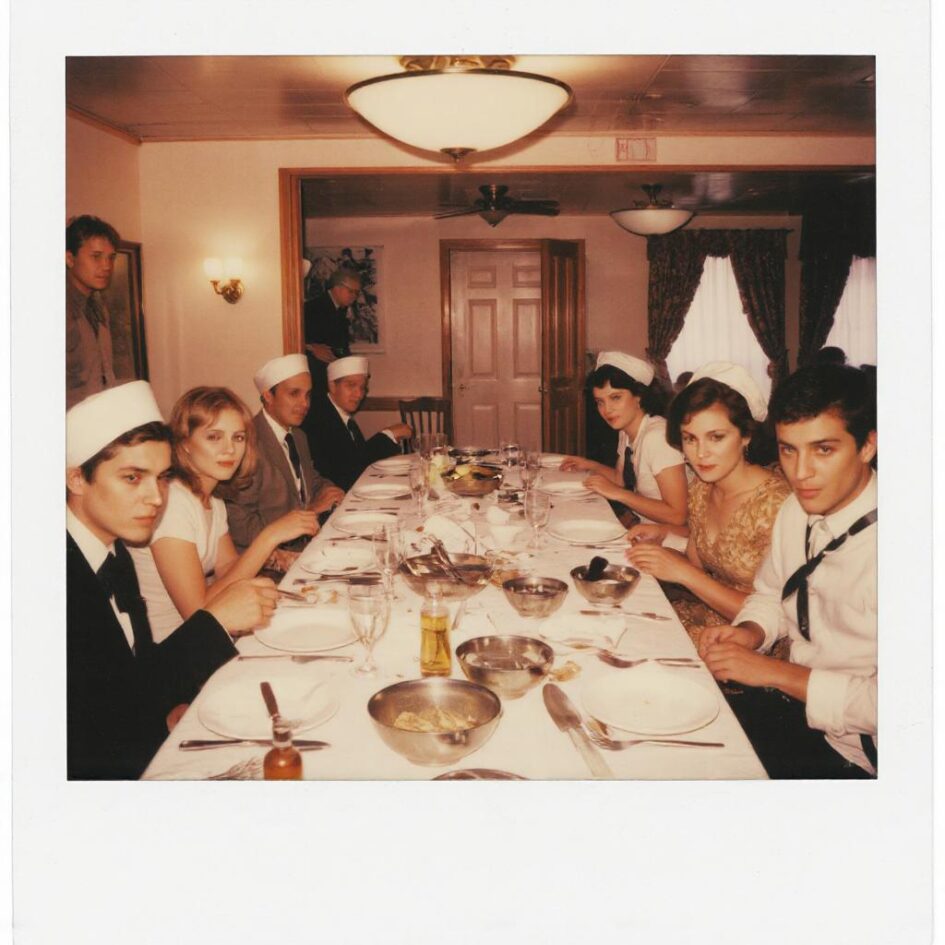The Last Course
“It’s hard to impress me with chicken.” That was the first thing I said as I sat down. A stupid joke, something to fill the silence
Mrs. May just smiled, watching me eat.
There were about ten of us on the ship. We sat at the table together, along with a few locals and a traveler, I think. The room was quiet; you could hear the chewing of the chicken in people’s mouths. The chicken was perfectly cooked, seasoned just right, and very tender.
I asked, “What is this?”
She replied, “Chicken. It’s farm-raised. Very local.”
I looked around. There was no coop, no chickens. Where was the food coming from? There was no area for livestock. Just vegetables growing in the garden. The hum of the fridge in the basement. The day went on. The ship was part of a research project that discovered the unknowns of the Arctic. That night, we had a terrible storm, and we lost two passengers overboard, their screams silenced by the rough waters. That morning, Mrs. May made us breakfast. No one mentioned the empty seats. There was more food than before.
No one questioned it at first.
I was a recent graduate student helping a researcher. They had paid me for my time. I was heavily in debt and needed the money. There were strict rules put in place by Mrs. May. We would need to take turns sleeping to watch the ship. The fridge had a padlock on it, and you were not to go into the kitchen. The next day, Mrs. May made us breakfast, as usual, more food than we could eat. Once again, the empty seats remained untouched, unnoticed, and overlooked. We arrived at the ice shelf and began our work. Core samples, temperature logs, underwater scans.
But people kept disappearing. No signs of struggle. No farewells. Just fewer faces at the table. The food, though, never ran out.
It got better.
Roasted meat with rosemary. Broths rich with marrow. Crispy skin, golden and perfect, served with root vegetables that I swear we didn’t have before. Everyone ate. No one said it. But we all knew. So when I made my little remark about chicken, I was testing her.
Her smile didn’t falter. But that night, I found her in the hallway outside the freezer.
Muttering.
The door glowed blue from the inside. Ice crystallized in lines along the frame. I watched her key in a passcode and disappear inside. When she came out, her apron was wet. Shivers ran through me like electricity.
There was dragging at night—not heavy, wet, like something sliding across the steel. Once, I heard my name said three times. Each voice was mine. The next day, I broke in. The keypad was easy enough. The code was her birthday, scrawled on the back of a recipe card. Inside the freezer, it was colder than any cold I’ve ever known. It felt like the cold knew me. Reached for me. Lying in the center of it all, surrounded by IVs and tubes and softly beeping monitors, was me.
Same face. Same scar on the chin. Same old boots.
Except the skin moved. Slightly. Like something underneath was shifting. Adapting. Learning how to fit. Then its eyes opened.
“You took too long,” it said in my voice. “She was trying to stop it.”
I turned around. Mrs. May was there. The cleaver in her hands gleamed like ice.
“If you eat it before it finishes, it dies,” she said. “That’s the rule.”
I didn’t understand.
“They harvested it from the ice. A mimic. It makes itself from memory, from cells. But it takes time. And hunger. So we stay ahead. We eat the false before it can replace the real.”
She stared at me. Tears froze on her cheeks.
“You weren’t supposed to know.”
There are only four of us left. The meals are small. Quiet. No one says names anymore. But last night, I heard dragging again. And under the floorboards, something whispered in my voice.
“Do you know who you are?”
Today, I checked the manifest. There were eleven of us originally. But Mrs. May wasn’t listed. I confronted Wren about it. She looked at me like I was mad. “There’s no Mrs. May. You’ve been cooking the meals.” My stomach flipped. I don’t remember cooking anything. I don’t even know where the knives are kept. But I do remember the taste. Perfectly seasoned. Always warm. I snuck back into the freezer. The mimic was gone. In its place was something else, something older. It looked like me again. Thinner. Starved. Eyes sunken and black.
“You’ve been eating your memories,” it croaked.
The walls pulsed with light, like veins. The cold wind howled from nowhere. I remembered Mrs. May’s smile. The way her hands shook. The dragging noises. The faces at the table slowly changing, merging.
I don’t know who I am anymore. I just know I’m not hungry. Not yet. Wren is gone. Or maybe she never existed. I found her coat, her glasses, and even her voice somewhere inside my head—but nobody. Just a chair, still warm. I thought I saw Mrs. May last night, standing at the end of the hallway, humming a lullaby I’ve never heard but somehow know. She beckoned me toward the freezer again.
I went. Inside, it was full. Not with people. Not with food. But with mirrors. They showed me rooms I didn’t remember entering, meals I didn’t remember cooking, and conversations I didn’t remember having—until I did. In every reflection, I was someone else. Or something else. And in the last one, I saw a banquet. Every guest had my face. The food was gone. They turned to me. They smiled.
It’s hard to impress me with chicken.
At least that’s what I remember.
But I’ve learned to live with it.

Leave a Reply